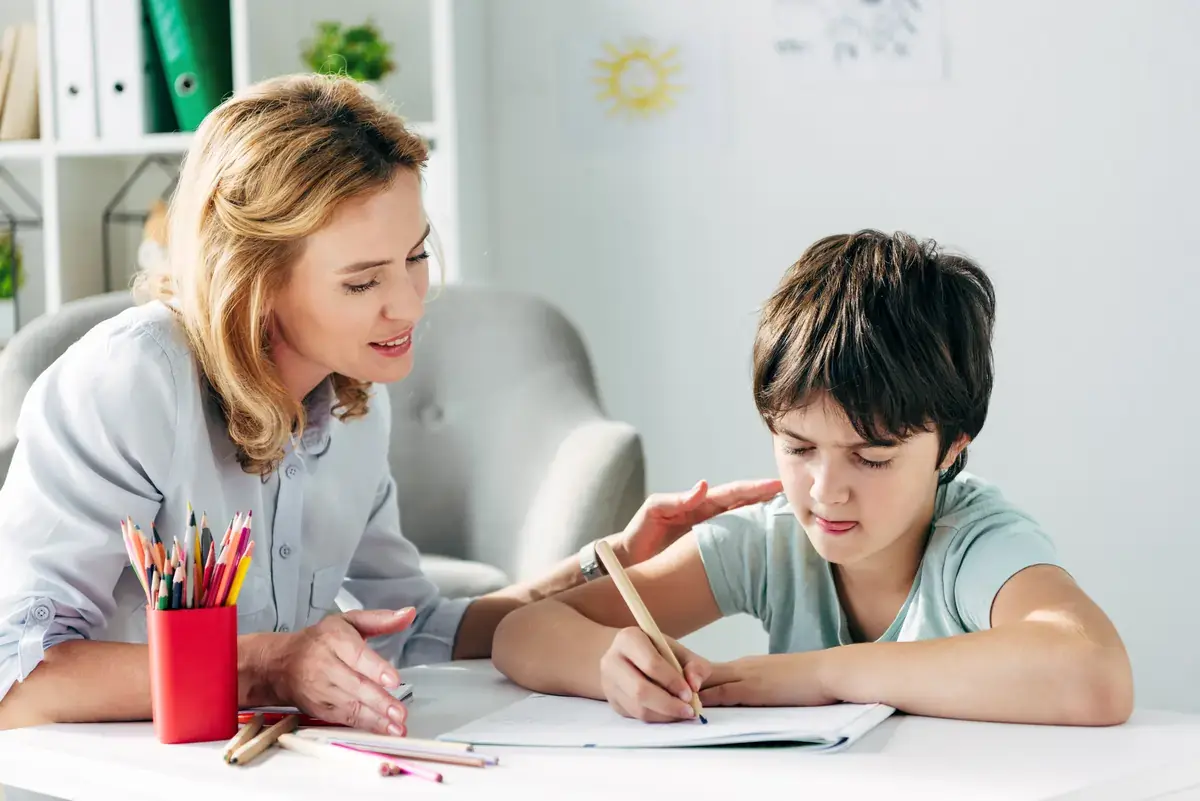How to Express Romantic Love: Effective and Heartfelt Gestures
All the world celebrates romantic love, and people from all walks of life look for ordinary moments and extraordinary ones to express love to their...

Post-traumatic stress disorder (PTSD) can occur in children who have experienced a traumatic event, such as abuse, crime, or family conflict. PTSD can significantly impact a child’s grieving process and may manifest as re-experiencing the trauma, avoidance, negative thoughts, and panic and anxiety disorders.
Understanding PTSD in children is crucial for providing appropriate support and helping them heal.
Child PTSD Resources:
How does PTSD affect children?
What can cause PTSD in children?
How to Help If My Child Has PTSD
PTSD can have a profound effect on children, causing distress, social problems, and academic difficulties. These issues can further complicate the grieving process, making it even more challenging for the child to cope and heal.
Children who experience PTSD may struggle to express their emotions, leading to feelings of isolation and loneliness.
The distress caused by PTSD in children can manifest as intrusive memories, nightmares, or flashbacks. These symptoms can be overwhelming and frightening for the child, making it difficult for them to process their emotions and cope with their PTSd.
Providing a supportive environment and helping the child develop healthy coping strategies can alleviate this distress and promote healing.
Children with PTSD may also experience social problems such as withdrawal, aggression, or difficulty forming relationships. These issues can further isolate the child and hinder their ability to process their grief.
It is essential to recognize these social problems and provide appropriate support to help the child overcome these challenges and develop healthy relationships.
Academic difficulties due to PTSD can include concentration problems, memory issues, or emotional distress. These challenges can impact the child’s academic performance and overall well-being.
Providing a supportive and understanding environment, with the help of school counselors, can help the child cope with these difficulties and succeed academically.
Recognizing the symptoms of PTSD in children is crucial for providing the appropriate support and intervention. Symptoms can include:
By identifying these symptoms, caregivers and professionals can help the child access the necessary resources and support to overcome their trauma and heal.
Various traumatic events can trigger PTSD in children, including:
Abuse can have a profound impact on a child’s mental health, leading to the development of PTSD and other mental health disorders. Supporting a child who has experienced abuse requires understanding, patience, and appropriate intervention to help them process their emotions and heal.
Intervention should be tailored to the individual child, taking into account their child’s age and developmental level.
Crime can also have significant effects on children, potentially leading to the development of PTSD. Children exposed to crime may experience feelings of fear, anxiety, and depression, which can further complicate their grieving process.
Providing a safe and supportive environment can help children cope with their trauma and recover.
Family conflict, often involving family members, can be another potential cause of PTSD in children. The emotional turmoil and stress caused by family conflict can negatively impact a child’s mental health, making it crucial to recognize the signs and provide appropriate support to help the child process their emotions and heal.
It is important to be aware of the signs of PTSD in children, such as nightmares and flashbacks.
If your child is struggling with PTSD, there are several ways to help them heal and recover. Providing emotional support, strengthening the parent-child bond, and allowing the child to have their own space are essential components of helping a child with PTSD.
Additionally, seeking professional help may be necessary if the child continues to struggle with their emotions and symptoms.
Offering emotional support and understanding to a child with PTSD is crucial in helping them process their emotions and experiences. Creating a safe and supportive environment, listening without judgment, and validating their feelings are key strategies that can help a child feel understood and reassured as they navigate their PTSD journey.
Strengthening the bond between the child and caregiver is an essential aspect of promoting healing and recovery for a child with PTSD. Some activities that can help cultivate a sense of connection and security include:
These activities can help the child feel more secure and better able to cope with their emotions. Creating a safe and supportive environment is also important for a child with PTSD.
Child therapy is the best way to get your child the mental health care they need.
If you suspect your child may have PTSD, it's important to get in touch with a child therapist right away. Only a trained professional has the training and expertise required to fully analyze a child's mental health and execute the proper treatment plan.

All the world celebrates romantic love, and people from all walks of life look for ordinary moments and extraordinary ones to express love to their...

What is relationship burnout or relationship fatigue? Many of us have heard of burnout, but we often connect it to professional life and the problems...

In today's digital age, so many of us are locked into our mobile devices each and every day, which can have a negative impact on our mental...